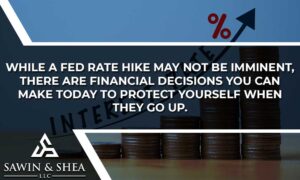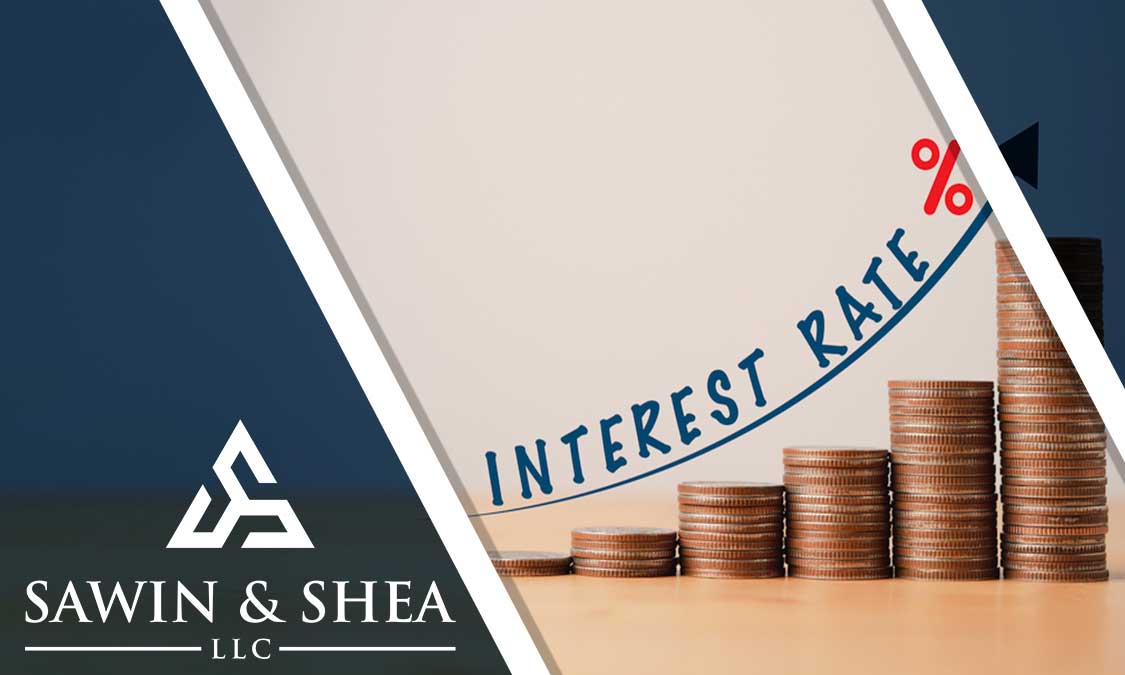The Federal Reserve determines interest rates that drive borrowing costs for businesses and consumers. The Fed understands monetary policy implications that keep the US economy in check. It determines whether to increase, decrease, or maintain interest rates.
When the economy shows signs of inflation, the Fed may raise interest rates to reduce economic activity and prevent prices from rising too rapidly. Conversely, the Fed may lower interest rates when the economy is sluggish, with high unemployment and low inflation. This encourages borrowing and spending, thereby boosting economic growth and job creation.
The Fed balances inflation and unemployment by leveraging predictable monetary policy implications to ensure long-term stability and sustainable economic growth. So, How Can The Federal Interest Rate Increase Affect Your Money?
The Personal Finance Ramifications of Interest Rate Hikes
Knowing why the Fed adjusts rates is essential, but the bigger question is how those changes impact you.
The most common economic impact of interest rate hikes on individuals include:
- Borrowing costs: When the Fed raises rates, borrowing becomes more expensive. This affects mortgages, credit cards, and other loans tied to critical benchmarks. Fixed-rate loans remain unchanged, but variable rates adjust, impacting borrowers.
- Loan approvals: Higher rates can make lenders more cautious, leading to increased loan denials, especially for those with lower credit scores.
- Savings and CDs: Savers can benefit from higher yields on savings accounts and CDs as banks seek deposits in response to Fed rate hikes.
- Investments: The stock market reacts to Fed rate decisions, affecting investment portfolios and retirement accounts. Rate cuts may spur market rallies, while unexpected actions can lead to uncertainty.
- Purchasing power: Fed policies influence inflation and consumer purchasing power. Lower rates stimulate spending, potentially fueling inflation, while rate hikes aim to control it.
- Employment: Tightening credit conditions can impact businesses’ expansion plans and job creation despite positive job market indicators.
- Effect on the housing market: Changes in interest rates can impact homebuyers’ affordability and demand for housing, influencing property prices and mortgage activity.
- Consumer confidence: Consumer sentiment may be influenced by changes in interest rates, impacting spending behavior and overall economic activity.
- Impact on retirement planning: Fed policies affect returns on fixed-income investments like bonds and CDs, influencing retirement savings strategies and withdrawal plans for retirees.
How To Protect Yourself from Rising Interest Rates

While a Fed rate hike may not be imminent, there are financial decisions you can make today to protect yourself when they go up.
Here are a few strategies that will minimize your risk of damaging personal finance ramifications from future rate hikes:
- Manage credit card debt: Prioritize paying down debt aggressively or explore options like balance transfers or debt consolidation to mitigate increased interest costs before rates rise.
- Secure mortgage rates: Fixed-rate mortgage holders need not worry about changes, but prospective homebuyers may face higher mortgage rates. Consider locking in rates or exploring alternative financing options to minimize potential cost increases.
- Evaluate auto loan terms: Act promptly to secure favorable rates or consider refinancing to capitalize on lower interest rates before potential increases.
- Plan for student loan repayment: While existing federal student loans remain unaffected by interest rate changes, future loans may become costlier. Review repayment options and consider refinancing private loans before rates increase further.
- Assess business financing: Evaluate the implications of higher borrowing costs on business operations and financing needs. Explore alternative financing options or strategies to manage cash flow and capital expenditures.
- Review insurance policies: Assess the potential impact of rising interest rates on insurance premiums and policy returns. Consider consulting with an insurance advisor to review coverage options and possible adjustments.
- Explore debt management solutions: Review existing debt obligations, such as personal loans or lines of credit, and assess the impact of rising interest rates on repayment terms. Explore debt consolidation or refinancing options to optimize repayment strategies.
- Consider tax planning strategies: Evaluate potential tax implications of rising interest rates on investment income, capital gains, and other taxable transactions. Consult with a tax advisor to explore tax-efficient strategies for managing investments and minimizing tax liabilities.
Your best strategy is to stay informed on economic developments and be flexible in your financial plans so you can adapt as the market shifts.
Not All Outcomes of Higher Rates Negatively Impact You

Although rising interest rates are often unfavorable, they can benefit consumers and investors in various ways.
Here are three ways you can benefit from higher rates:
- Optimize savings: Rising interest rates translate to higher savings account yields. Look into high-yield savings accounts or certificates of deposit (CDs) that can maximize savings returns.
- Monitor retirement accounts: Assess the impact of rising interest rates on retirement savings, including 401(k) plans and IRAs. Consider adjusting contributions or investment allocations to align with changing market conditions.
- Evaluate investment strategies: Consider how rising interest rates may impact your investment portfolios. Review asset allocations and diversification strategies to identify risks associated with market volatility.
Rising interest rates may pose challenges, but by staying informed and adapting to evolving interest rates, you can mitigate the negative impact and set yourself up for long-term financial success.
Struggling with the Economic Impact of Interest Rate Hikes?
If you are wondering, “How Can The Federal Interest Rate Increase Affect Your Money?” Just reach out to our Law Firm or view our website for more information.
When rates go up, higher payments are just a little behind. If you’re having difficulty keeping up, call Sawin & Shea today at 317-759-1483 to discuss your debt relief options.
Your initial consultation is always free. Click here to schedule a case evaluation with one of our experienced debt relief attorneys.
If you’re wondering how the federal interest rate increase affects your money, Sawin & Shea is here to help!



